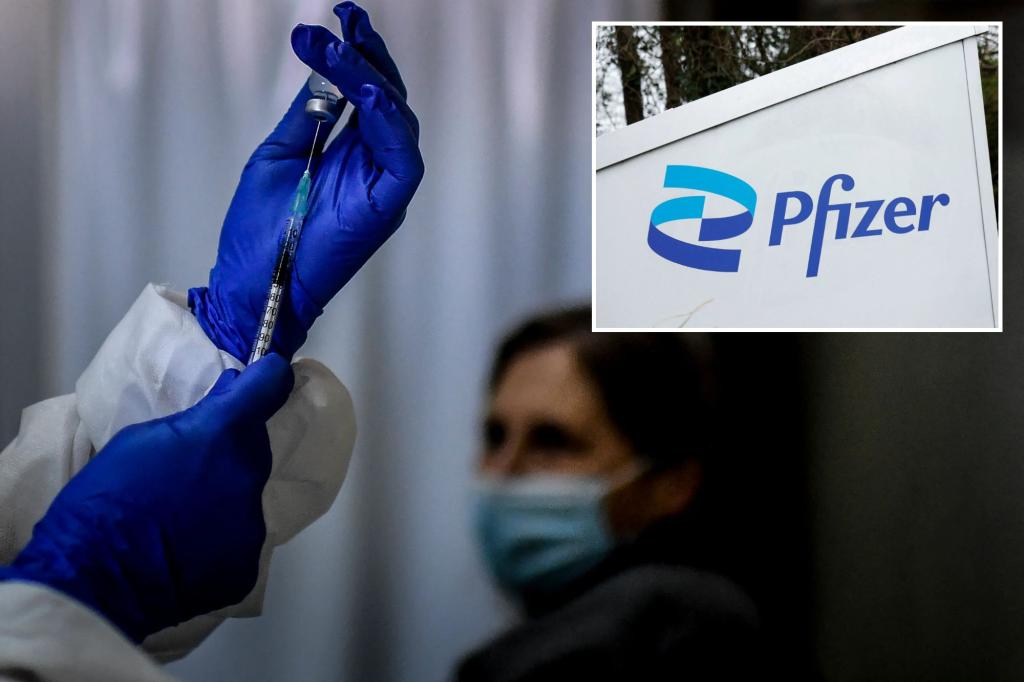Investigating the Timing: Did Pfizer Manipulate COVID Vaccine Announcements for Political Gain?
In a world grappling with the unprecedented challenges posed by the COVID-19 pandemic, vaccine development became a beacon of hope. Among the frontrunners in this race was Pfizer, whose vaccine, developed in collaboration with BioNTech, was one of the first to demonstrate efficacy in late 2020. However, recent reports have ignited a debate regarding the timing of Pfizer’s announcements surrounding its vaccine’s success, suggesting that the pharmaceutical giant may have strategically delayed its disclosure until after the 2020 U.S. Presidential election. This article seeks to explore these allegations, their implications, and the broader context surrounding vaccine announcements during a politically charged environment.
The Allegations of Timing Manipulation
During the tumultuous lead-up to the 2020 election, Pfizer’s vaccine announcement came as a critical turning point. On November 9, 2020, just days after the election, Pfizer announced that its vaccine was more than 90% effective in preventing COVID-19. This timing has led to speculation that the company may have withheld this information to avoid influencing the election outcome.
Critics argue that had the announcement been made earlier, it could have changed the dynamics of the election, potentially benefiting then-incumbent President Donald Trump, who had heavily touted the operation of “Warp Speed” for vaccine development. The question remains: Was there a conscious decision to delay the announcement for political gain, or was it simply a matter of scientific prudence?
Understanding the Vaccine Development Process
To evaluate these allegations, it’s essential to understand the rigorous process involved in vaccine development. Pfizer and BioNTech’s vaccine underwent multiple phases of clinical trials, which are designed to ensure safety and efficacy. An interim analysis of the trial data was conducted to determine if the vaccine met the pre-established criteria for effectiveness.
This process is not merely a formality; it is a safeguard that protects public health and bolsters trust in vaccines. Pfizer’s decision to wait until they had robust data to make an announcement can be viewed as a responsible move in the context of public health.
Political Context and Public Perception
The political landscape during the 2020 election was extraordinarily polarized. Vaccine announcements were not only a matter of public health; they were also intertwined with political narratives. The timing of Pfizer’s announcement raised eyebrows and fueled conspiracy theories suggesting that pharmaceutical companies were acting in concert with political agendas.
- Trust Issues: The pandemic had already strained public trust in institutions, including the government and pharmaceutical companies. Allegations of manipulation only serve to deepen skepticism.
- Impact on Vaccination Rates: If the public perceives that vaccine announcements are politically motivated, it could affect willingness to get vaccinated, further complicating efforts to achieve herd immunity.
Statements from Pfizer and Regulatory Bodies
In response to the allegations, Pfizer has maintained that the timing of its announcement was based on scientific data rather than political considerations. The company clarified that the data analysis was completed on November 8, 2020, and the announcement followed on November 9 after discussions with regulatory authorities.
Similarly, Dr. Anthony Fauci and other health experts have emphasized the importance of data integrity over political expediency. The U.S. Food and Drug Administration (FDA) and the Centers for Disease Control and Prevention (CDC) have also underlined the necessity of rigorous review processes to ensure vaccine safety and efficacy.
The Role of Transparency in Vaccine Development
Transparency plays a crucial role in public health communication. In the case of Pfizer, while the company’s adherence to scientific protocols is commendable, the perceived lack of transparency regarding the timing of the announcement can lead to public distrust.
Experts suggest that pharmaceutical companies need to find a balance between scientific rigor and timely communication. Continual updates during the vaccine development process may help alleviate concerns and foster public confidence.
Broader Implications for Future Public Health Strategies
The ramifications of the COVID-19 vaccine announcement timing extend beyond political speculation. They highlight larger issues that need addressing for future public health crises:
- Need for Clear Communication: Public health entities must prioritize clear and timely communication with the public to build trust.
- Policy Development: The relationship between pharmaceutical companies and government entities needs to be transparent to prevent perceptions of collusion or manipulation.
- Public Engagement: Engaging communities in discussions about vaccine development and approval processes can demystify the science and foster public trust.
Conclusion: Navigating the Intersection of Science and Politics
As we continue to navigate the complexities of the COVID-19 pandemic and the accompanying vaccine rollout, it’s imperative to scrutinize the intersection of science and politics. The allegations surrounding Pfizer’s vaccine announcement timing serve as a critical reminder of the importance of transparency, trust, and ethical considerations in public health.
While the evidence surrounding intentional manipulation remains inconclusive, it is clear that the implications of perception can significantly impact public health efforts. Moving forward, fostering a culture of open communication and trust is essential to ensure that science remains at the forefront of public health decisions, free from the shadows of political agendas.
In light of these discussions, the pharmaceutical industry must remain vigilant, ensuring that their actions align with public health priorities rather than political interests. Only through diligent transparency can we restore faith in the systems designed to protect us, paving the way for a healthier and more informed society.
See more WebMD Network



